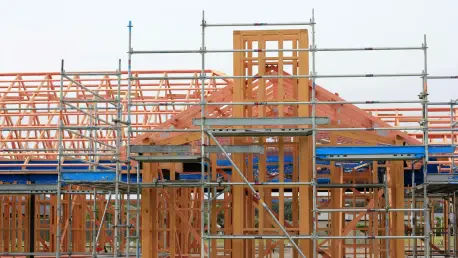The U.S. hotel construction industry is experiencing an era of unprecedented growth, with Dallas at its epicenter. According to a report from Lodging Econometrics, the city is leading the nation with a remarkable 203 projects and a whopping 24,496 rooms, posting annual growth rates of 9 percent in project volume and 11 percent in room count. Dallas is not just settling for the present; it is actively shaping the future with robust expansions backed by early planning and projects scheduled to kick off in the coming months. This thrust has positioned Dallas as the leader, even as cities like Atlanta, Nashville, Phoenix, and Austin surge in hotel construction activities with record-breaking numbers of projects and rooms.
Dominance in Early Planning and Project Initiation
Dallas’s Strategic Growth Plan
Dallas is not only leading in ongoing hotel projects but is also at the forefront of early planning, which reflects strategic foresight. This proactive stance ensures the city’s continued dominance in the hospitality sector. The number of projects set to commence within the next year attests to a clear and potent pipeline of future developments. This ambitious drive is supported by strong backing from investors and stakeholders who recognize the city’s promising growth potential. Meanwhile, while Dallas claims the brightest spotlight, cities like Raleigh-Durham and St. Louis have also risen to prominence. Both markets achieved unprecedented numbers in projects and room counts, signaling regional optimism in hotel expansion.
Broader Impact on the U.S. Market
The influence of Dallas extends beyond city borders, energizing the broader U.S. hotel market with its trailblazing efforts. Other cities are carefully monitoring Dallas’s strategies to emulate its success. Nationwide, urban centers are experiencing vibrant hotel construction booms triggered by factors such as increasing tourism, the rise in business travel, and strategic urban development projects. This reflects a broader trend toward luxury, comfort, and modernity in accommodation options as travelers demand more from their stay experiences. New project announcements are continually pouring in, with proximity to top-tier locales and innovative architectural designs becoming key selling points.
Renovations and New Openings Shape Market Dynamics
Importance of Renovation and Conversion Activities
Renovation and brand conversion constantly revitalize existing hotel frameworks, ensuring facilities remain competitive, functional, and appealing. Key markets like Washington D.C., Charlotte, and Houston have witnessed high activity in this realm, reflecting a commitment to maintaining modern, state-of-the-art amenities for guests. Simultaneously, Chicago, Atlanta, and other vibrant cities undergo a renovation frenzy to showcase fresh, contemporary, and competitive accommodation landscapes. Such efforts solidify these cities’ statuses as premier travel destinations that combine historical charm and modern elegance, captivating discerning travelers.
Proliferation of New Hotels
The U.S. hotel industry is progressing with a rapid influx of new hotel developments. In the opening quarter, 161 new hotels became operational. As the year unfolds, projections suggest up to 740 new hotel openings nationwide, confirming the robust trajectory of industry expansion and renewal. Cities like Atlanta, Dallas, and New York are spearheading this ongoing wave, setting benchmarks for others to follow while continually enhancing their urban appeal. Looking ahead, the trend is expected to persist, with projections indicating Dallas will maintain its lead in new openings, followed closely by emerging powerhouses like Phoenix and the Inland Empire, which are growing as viable business and leisure hubs.
Looking Forward: Sustained Growth and Future Prospects
Continued Expansion and Future Strategies
The remarkable expansion within U.S. hotel construction suggests a sustained trajectory of growth driven by strategic investments and forward-looking planning. Emphasizing diversification, markets are increasingly tapping into niches such as boutique and luxury hotels to cater to a broader spectrum of guests. Understanding shifting demographics and preferences remains crucial to thriving in this competitive climate, encouraging businesses to innovate and exceed guest expectations constantly. Collaborations between real estate developers, city planners, and hospitality experts supplement these efforts, creating environments conducive to sustainable growth.
Lessons from Current Successes
The U.S. hotel construction sector is experiencing unprecedented expansion, with Dallas as the central hub. Lodging Econometrics reports Dallas is leading nationwide with an impressive 203 projects and 24,496 rooms. This city is not only experiencing annual growth of 9 percent in the number of projects and 11 percent in room availability but is also actively shaping its future. Planning and projects set to launch in the coming months support Dallas’s robust expansion. As a result, the city is firmly in the lead, even as other cities like Atlanta, Nashville, Phoenix, and Austin also experience surges in hotel construction, boasting record numbers of projects and available rooms. The growth extends beyond mere numbers; it involves strategic positioning and foresight. This growth trend is a blend of present achievements and future ambitions, signifying the energy and vision propelling Dallas ahead. While other cities are gaining momentum, Dallas remains the frontrunner in this booming sector.









